From stage four cancer to getting back on the bike, with a little help from Lachlan Morton
Confounding doctors’ expectations, Chris Riley is back on his bike and savouring every moment, more than a year on from a devastating diagnosis
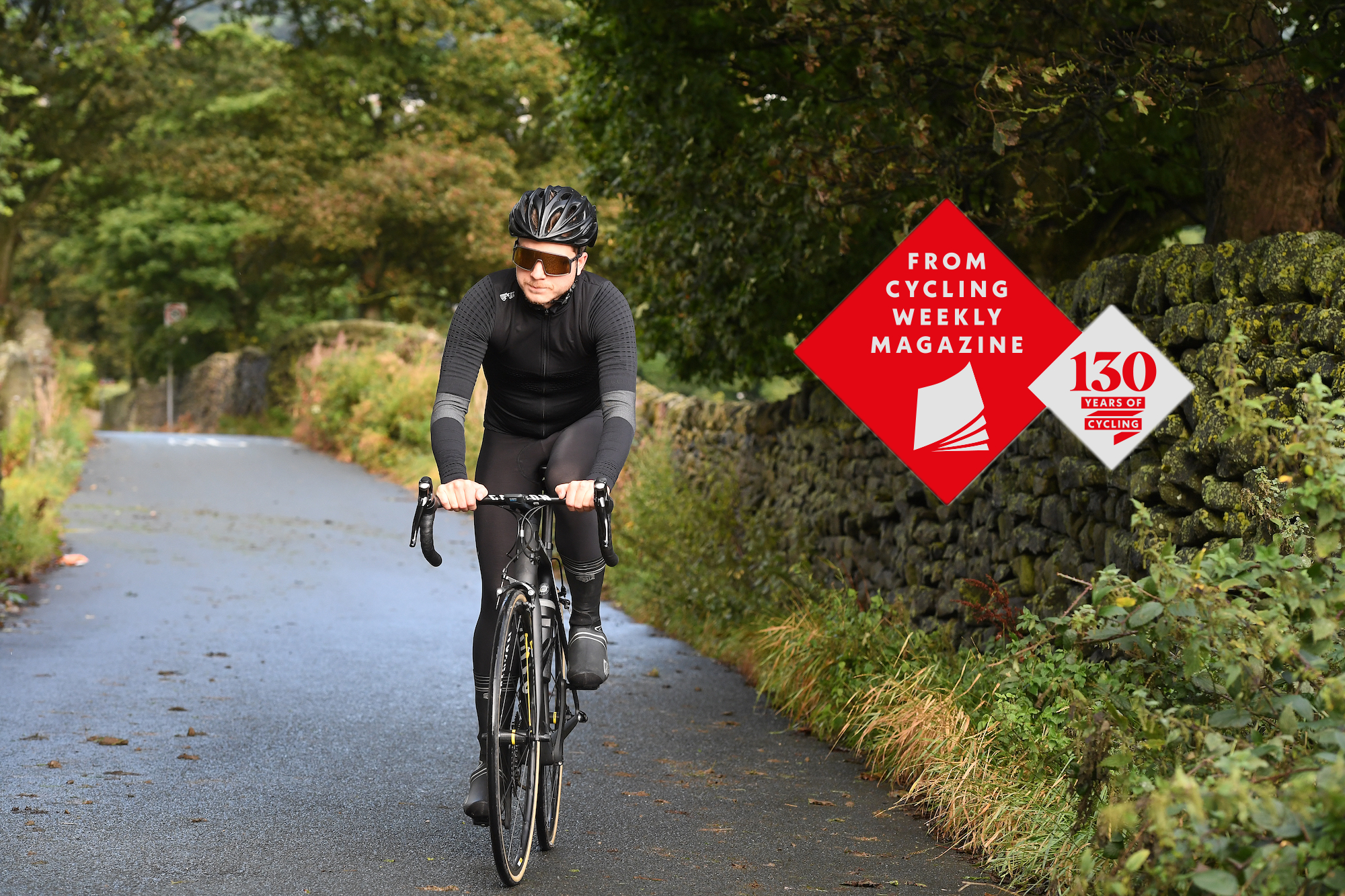
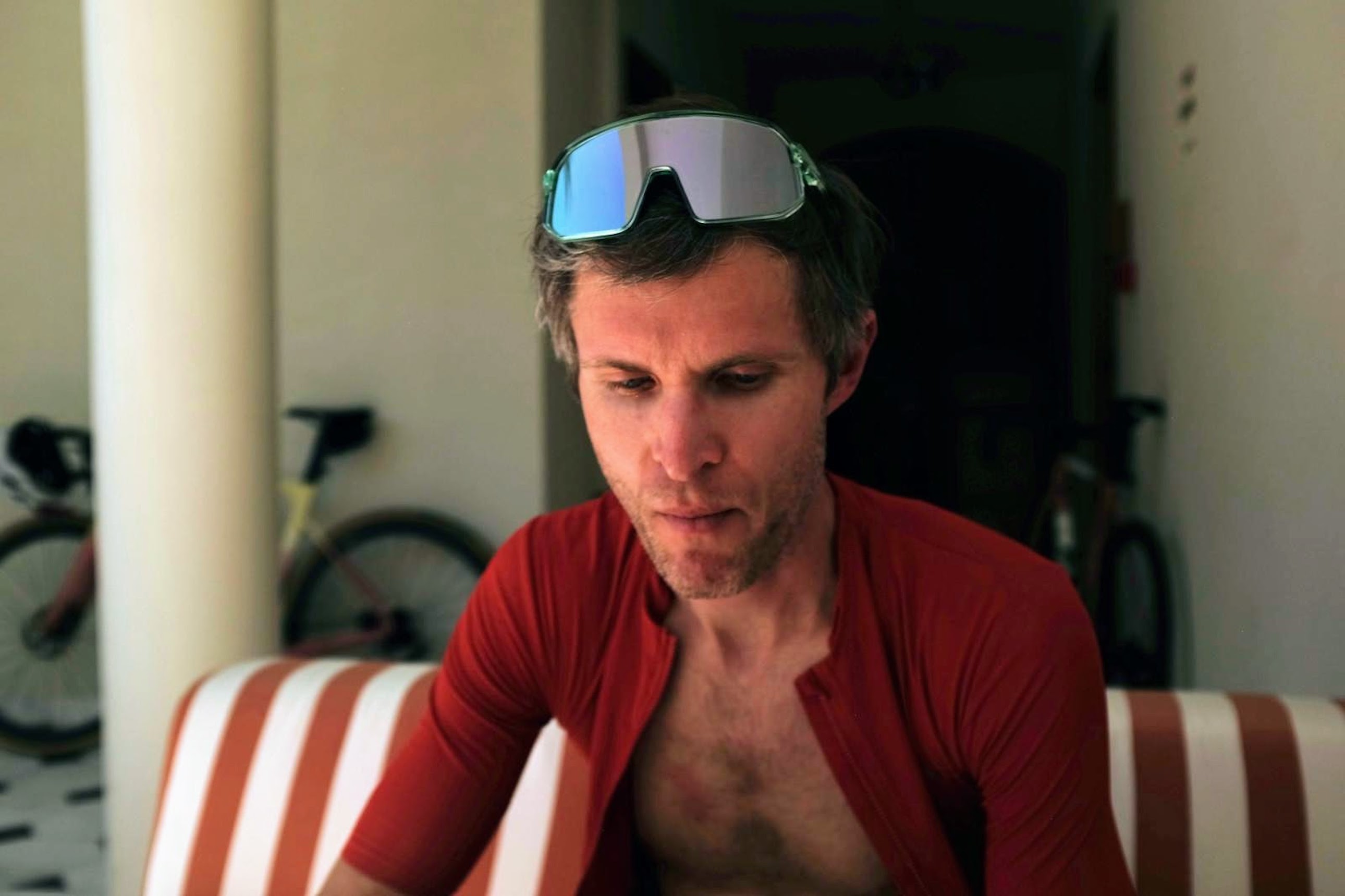
The last time I’d spoken to Chris Riley was January 2020. We chatted about how his fitness had progressed since he took part in CW’s Training Makeover series the previous spring.
The changes to the 28-year-old’s schedule were proving beneficial, he told me; he was feeling much fitter and even more motivated. It came as a sickening gut- punch, therefore, when just seven months later I received an email from Riley’s sister-in-law informing me that he had been diagnosed with inoperable stomach cancer and given only months to live.
The fact I am video-chatting with him now, more than a year after that diagnosis, tells you that Riley has defied the prognosis – but it’s even better than that: he’s back on his bike and the cancer is in retreat. Struggling to comprehend his rollercoaster journey since we last spoke, I ask him to start at the beginning. “After the Training Makeover in May through to November [2019] I felt fine and was enjoying my cycling,” he recalls, “but then I started feeling just not right, really anxious from out of nowhere.” Riley had no history of anxiety; even now, telling me about the darkest chapter of his life, the Yorkshireman exudes an easy, happy-go-lucky manner befitting of his job as a barber. Yet the psychological symptoms grew so severe that he started having panic attacks and was signed off work. “The doctor gave me antidepressants, which levelled off my anxiety but still I didn’t feel right, like an alien in my own body.”
He describes several weeks of functioning on autopilot, continuing to ride his bike but without feeling any zest or enjoyment in life. At a loss to understand his malaise, Riley visited a Reiki healer for an alternative view.
>>> Subscriptions deals for Cycling Weekly magazine
“Her words to me were life-changing,” he says. “She said I wasn’t giving off any of the usual signs of anxiety or depression but that she sensed problems around my stomach.” It is important to note here that there is no clinical evidence to support Reiki’s efficacy, but the healer’s words resounded in Riley’s mind. “I went back to my GP and said maybe we should look at my stomach, but she said not to worry and just did some blood tests which came back clear.”
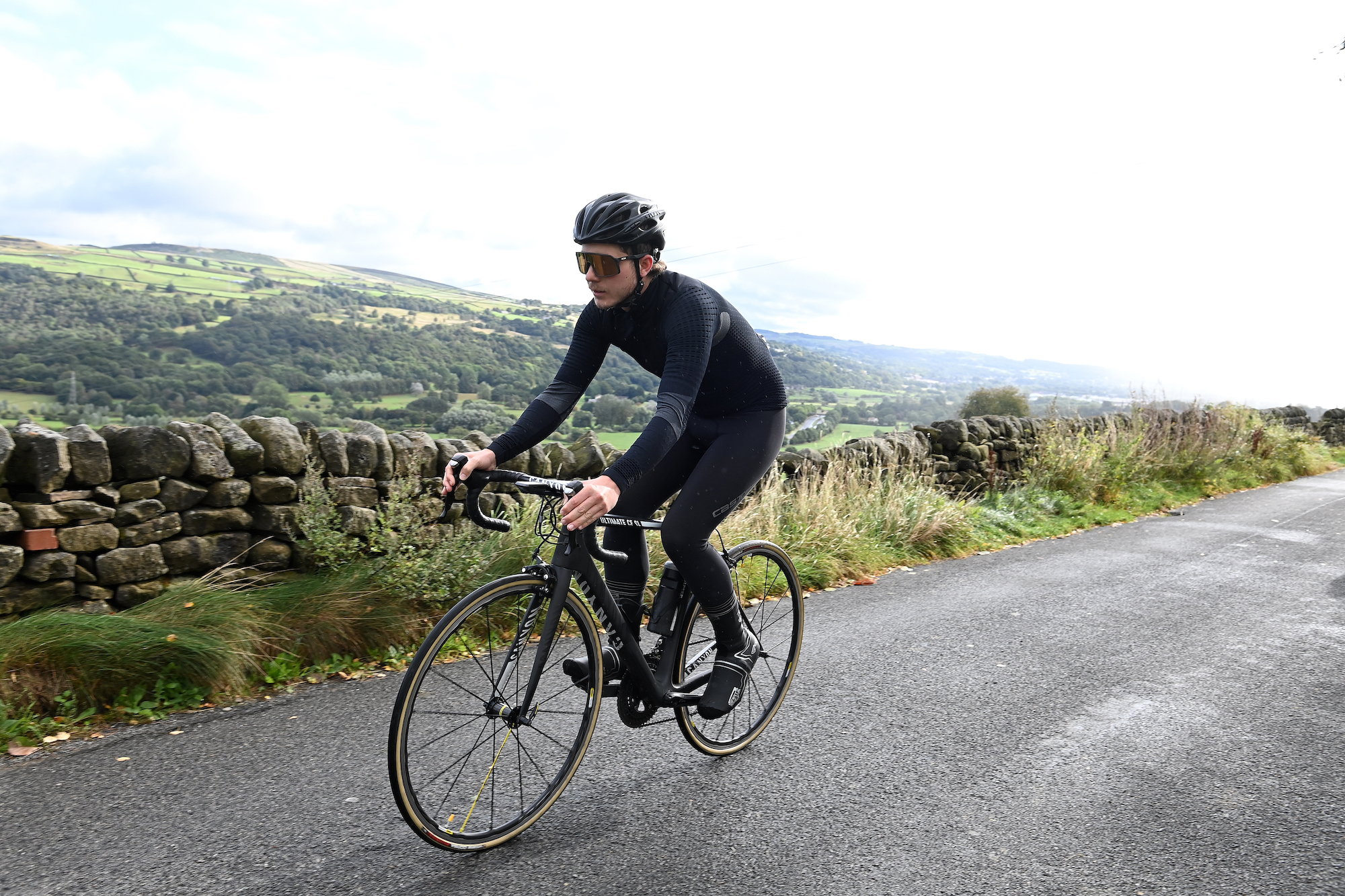
As lockdown set in and summer arrived, Riley’s symptoms took on a worrying new feature: he started finding it hard to swallow food, often having to be sick immediately after a meal. Initially, doctors suspected the antidepressants had given him a stomach ulcer and so altered his prescription.
Get The Leadout Newsletter
The latest race content, interviews, features, reviews and expert buying guides, direct to your inbox!
He did his best to cope with the eating discomfort – until coping was out of the question. “It was a hot July evening during lockdown and we were having a barbecue,” he remembers. “I took a bite from a burger and felt the worst pain I’ve ever felt and vomited up a load of blood. Luckily we live across the road from a hospital, so I went straight to A&E.”
After an initial assessment, Riley was booked in for an endoscopy the following week. When the appointment came round, he felt upbeat about finally getting a solution to his problems. “At first the doctor was having some banter and it was all very light-hearted,” says Riley, “but when they started the procedure, his demeanour totally changed, from jokey to serious, then silent.” At the end of the investigations, the doctor told Riley that some abnormalities had been found and he would need to stay in hospital and have further scans the next day. “Nobody had mentioned cancer or anything like that,” he adds.
Following the scans, Riley was called in for a meeting. “As soon as I walked in, I could tell it was serious: plastic chairs lined up, two doctors on one side, one on the other – it was like being in police custody!” He sensed a reluctance from the lead consultant to break the news. “He said, ‘I’ve only done this once or twice in my career... Yeah, you’re going to need some serious treatment, probably some chemotherapy and some experimental drugs.’” With the biopsy results not yet confirmed, Riley had an agonising further wait for a conclusive diagnosis.
Four days later, having broken the news to his family and fiancée Elle, Riley received the call from the oncologist, who told him the cancer was stage four, having spread to his liver and lymph nodes. “I asked him: with treatment, will everything be alright? He said, if the treatment works, the best we could expect is that you’ll live for a year. I was like, right, that’s really bad then.” Despite being in a state of shock, Riley grasped in his mind positive examples of people who have overturned the odds. “Even Lance Armstrong,” he says. “I know he’s alienated in cycling now, but I took a lot of hope from his book.”
The first bout of chemo caused such extreme nausea that Riley could not face continuing with it. “If it was only going to give me a few weeks longer to live, I thought, let’s not bother – and instead we booked to go on holiday to our favourite hotel in Greece!” For the next three months, he felt better – unbeknown to him, the first dose of chemo was working.
But then the symptoms came back worse than ever. In desperation, he travelled to Leeds and saw a new doctor who isolated the chemo drug that had caused the sickness and started him on a new combination.
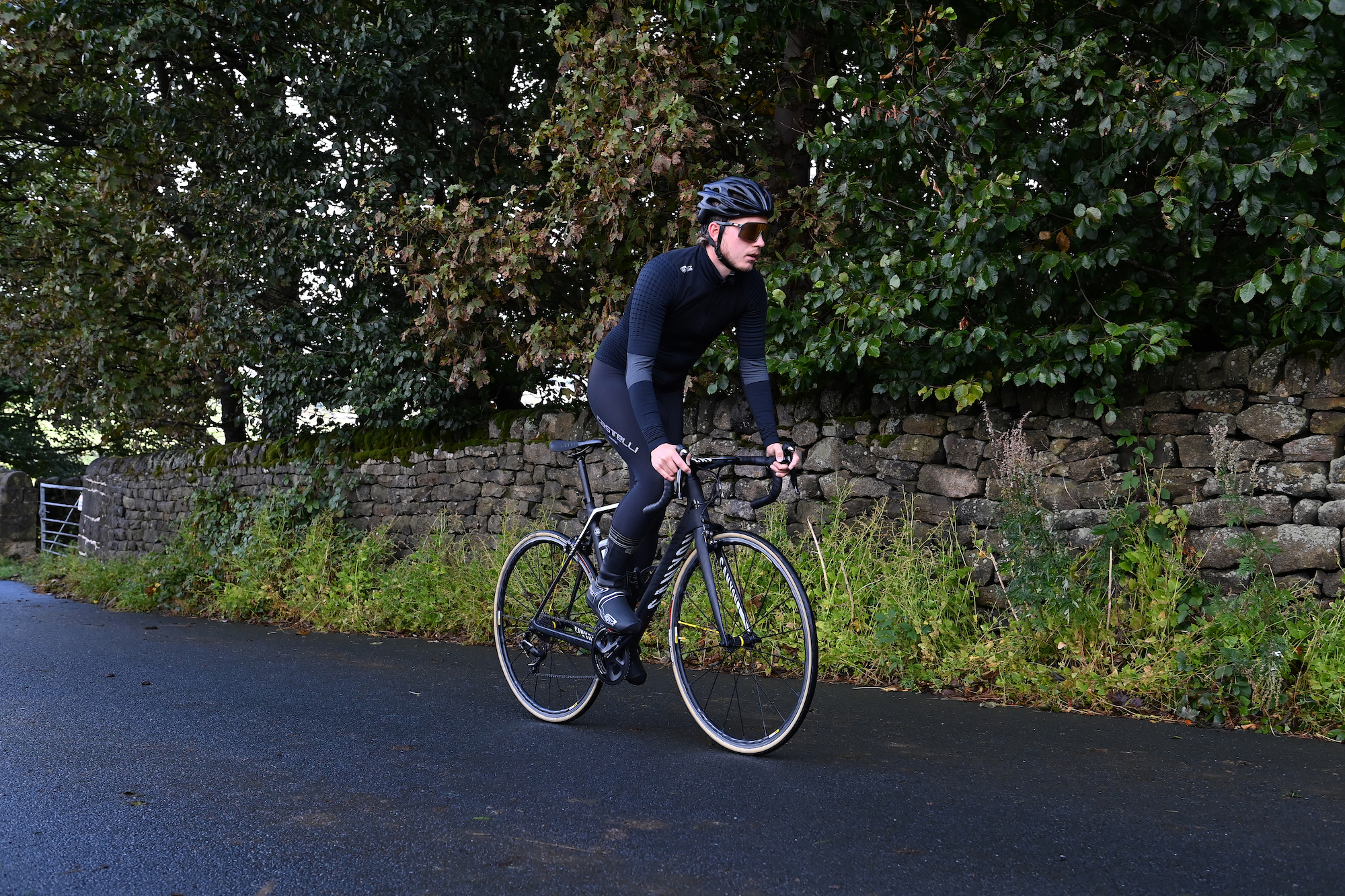
Meanwhile, his family had started a crowdfunding campaign that raised tens of thousands for additional private treatment and nutritional advice.
“Within a few days, I was up and about again,” says Riley. “After three cycles of chemo, scans showed the cancer had shrunk by two-thirds. It was a massive turning point: I no longer believed I was dying.” By March 2021, scans showed an almost total dissipation of the tumours, though doctors warned Riley that this news equated to reprieve rather than remission. He is now under “watch and wait” observation and awaiting a decision from surgeons on whether it may now be possible to operate on his stomach.
In addition to the tireless love and support from his family and friends, Riley has received morale-boosting messages from pro rider Lachlan Morton (EF Education-Nippo).
“He sent a message on Instagram and since then he’s kept checking in with me via WhatsApp, and even sent me a full EF kit to motivate me to get cycling again – he’s been awesome.” And how was it getting back on the bike for the first time? “It was just a seven-mile loop to begin with – and I was wiped out for the rest of the day.” He gradually upped the distance, feeling better as the chemo worked its way out of his system, and by mid-summer 2021 had resumed longer social rides with his mates “I’m now doing two to three rides a week, and recently took part in the 130km Dirty Reiver gravel sportive – great fun despite splitting my tyre!”
Now 29, Riley is not only defying his prognosis but glowing with a renewed appreciation of life – as well as a wry take on his old attitude towards death.
“All through growing up, I was always the happiest. If someone had told me I was going to die first, before all of my family and friends, I used to think that’s fine because it’s better than going through the pain of losing my parents or siblings,” he laughs at the irony. “So when I got diagnosed, I remember thinking, be careful what you wish for!”
The supportive pro - 'It's the other way round - Chris inspires me!'
EF Education-Nippo pro and adventure rider Lachlan Morton has kept in touch with Riley throughout his illness
"I met Chris at the Three Peaks cyclo-cross race in 2019 before his diagnosis. What felt like very shortly after, a friend of his reached out to see if I could push his crowdfunding campaign raising money for treatment. The situation was so unfortunate: not just that Chris could no longer be outside enjoying his bike but that he was now in a fight for his life. I tried to keep in touch and offer some support, but honestly I think I drew more motivation from him than vice versa.
"The idea of staying positive in seemingly impossible situations is a nice idea but incredibly difficult to put into practice.
"I’ve seen nothing but positivity and determination from Chris. That shows a strength of character and appreciation of life that I now aspire to."
This feature originally appeared in the print edition of Cycling Weekly, on sale in newsagents and supermarkets, priced £3.25.

Thank you for reading 20 articles this month* Join now for unlimited access
Enjoy your first month for just £1 / $1 / €1
*Read 5 free articles per month without a subscription

Join now for unlimited access
Try first month for just £1 / $1 / €1

David Bradford is features editor of Cycling Weekly (print edition). He has been writing and editing professionally for more than 15 years, and has published work in national newspapers and magazines including the Independent, the Guardian, the Times, the Irish Times, Vice.com and Runner’s World. Alongside his love of cycling, David is a long-distance runner with a marathon PB of two hours 28 minutes. Having been diagnosed with retinitis pigmentosa (RP) in 2006, he also writes about sight loss and hosts the podcast Ways of Not Seeing.
-
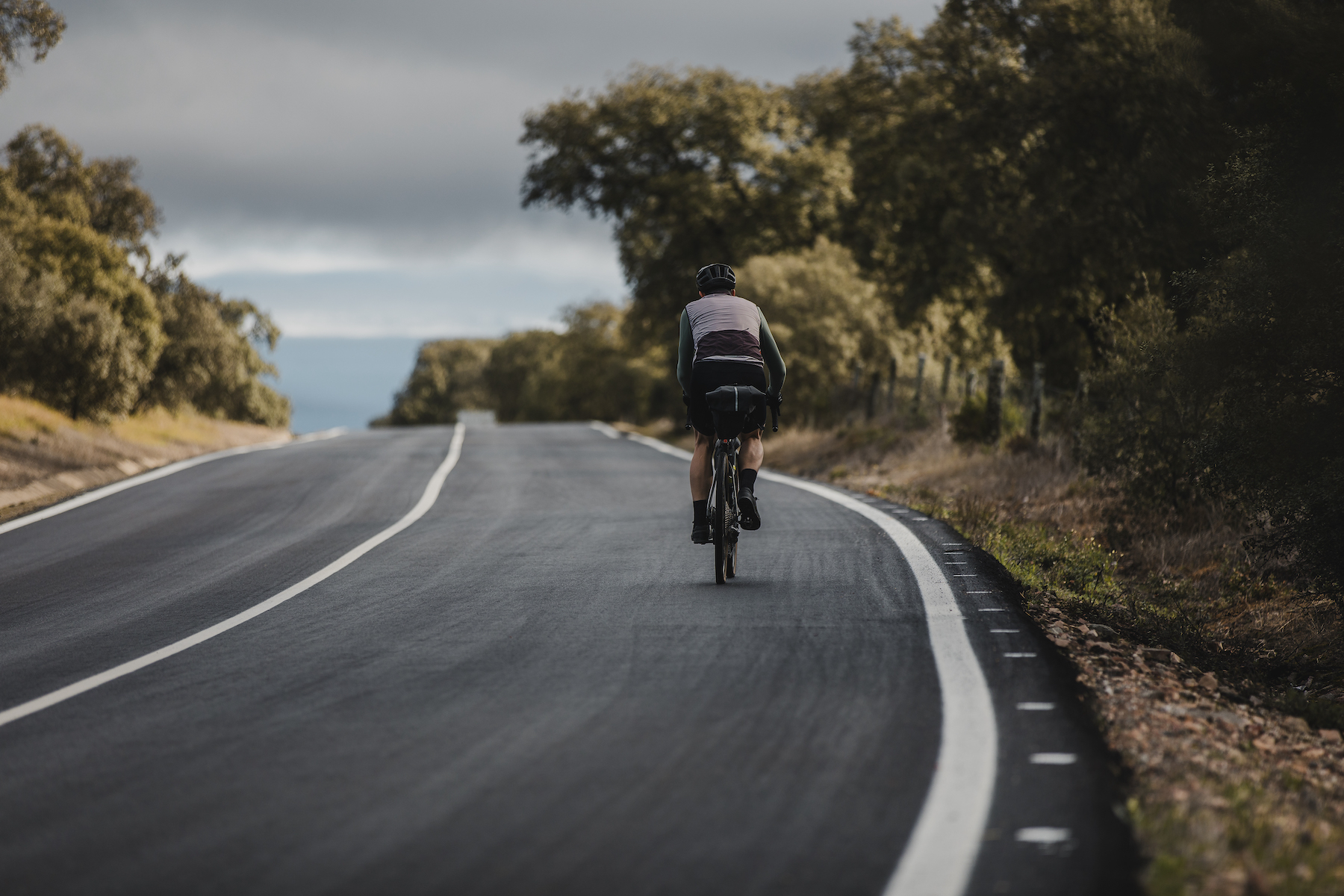 'This is the marriage venue, no?': how one rider ran the whole gamut of hallucinations in a single race
'This is the marriage venue, no?': how one rider ran the whole gamut of hallucinations in a single raceKabir Rachure's first RAAM was a crazy experience in more ways than one, he tells Cycling Weekly's Going Long podcast
By James Shrubsall
-
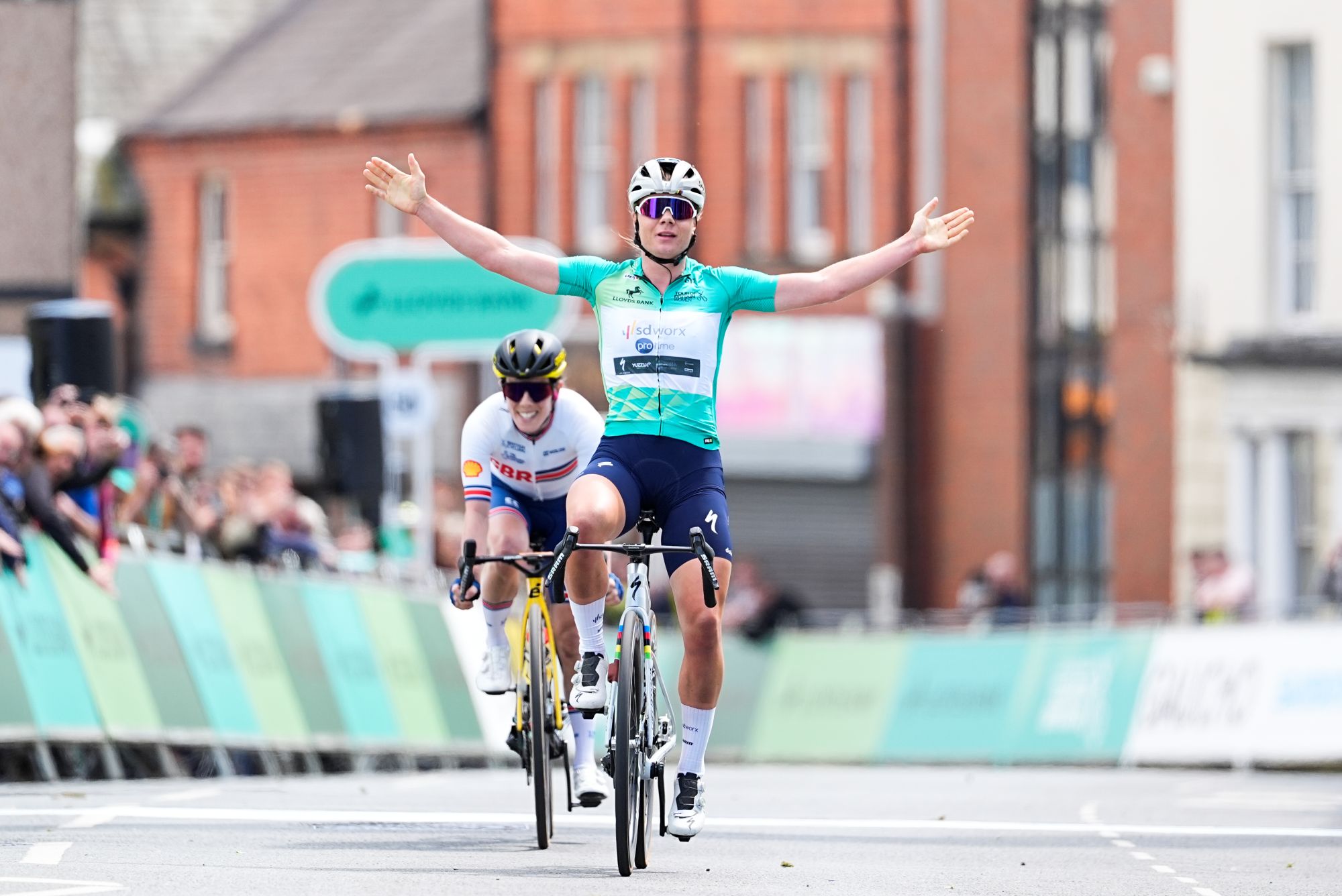 Full Tour of Britain Women route announced, taking place from North Yorkshire to Glasgow
Full Tour of Britain Women route announced, taking place from North Yorkshire to GlasgowBritish Cycling's Women's WorldTour four-stage race will take place in northern England and Scotland
By Tom Thewlis